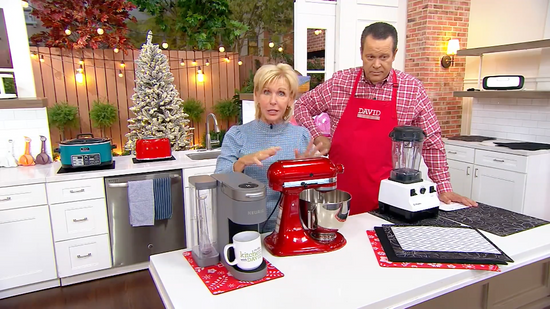Just a few years ago, organic foods were typically found at health food or specialty stores. Today, your local grocery likely has an organic section of its own. Health enthusiasts, environmentally-conscious food fans, and moms alike are going organic for many reasons, including the absence of pesticides and food additives and earth-friendly farming practices.
To be considered certified organic, the food product must meet strict outlined standards established by the U.S. Department of Agriculture (USDA). These standards not only regulate how the food is grown, but how it is handled and processed. Many organic food producers utilize the USDA Organic logo on their products to indicate their food is at least 90% organic. However, it is not required.
While studies show an organic apple has about the same nutrition as a conventionally-farmed apple, for instance, consumers don’t mind spending the extra cash for organic products to do better for the planet and to leave the pesticides and additives behind.
Higher ticket prices on organic foods make budgeting tougher, but if you plan ahead and use our 10 smart tips, you can still stay on track and eat the organic foods you love:
- Stay Organized
Plan your meals for the week according to the organic foods on sale at your favorite grocery store. You can also clip coupons from your favorite organic brands via their website or social media accounts.
- Use Your Freezer
If your store carries organic frozen produce, this is usually the cheaper option. This is especially true if the fruit or vegetable is out of season. You can also buy in-season or on-sale organic produce in bulk and freeze it for later. Double recipes for soups and stews and freeze the rest.
- Do It Yourself
Skip your favorite organic coffee shop and purchase organic coffee to make at home. You can also make your own organic granola bars, smoothies, and vegetable chips.
- Choose Wisely
Some produce items are more susceptible to pesticide residue, like peaches, celery, and bell peppers, for example. Meat and dairy are organic priorities because of the pesticides, antibiotics, and growth hormones found in these products. If you’re on a budget, prioritize and choose the most important items.
- Buy Local
Find a farmer’s market or locally-owned produce shop and purchase your organic produce there. Local food is much cheaper than produce items shipped from big farmers across the country. To get a chance at an even better deal, attend the market near closing time when many vendors will sell their produce at a cheaper price.
- Grow Your Own
Plant an herb pot in your kitchen or start a small garden inside or outside. There are plenty of resources available online for growing produce at home no matter how much space you have.
- Set a Budget
An easy but often overlooked tip is writing out a weekly and monthly food budget and then cross-checking your spending against it. This will help inform your process and let you know where you can spend and where you need to skimp.
- Shop a Grocery Store’s Generic Brand
Our local grocery store has a generic organic brand, and yours likely does, too. Take a look for an array of generic items like cereals, pastas, salad dressings, and more.
- Eat in Season
Eat fresh produce in season in order to avoid higher costs. Buy them in bulk and freeze for later.
- Eat Vegetarian
You can instantly eliminate high organic meat costs by eating vegetarian. A vegan diet also eliminates those high dairy costs. Opt for organic beans, grains, and soy items instead.
Eating organic on a budget is possible. Savor Our Solutions all year long and comment below to let us know how you’re saving money in the process. You can also check out our Spring Cleaning Pantry Tips so you can organize those organic items as soon as you get home.





